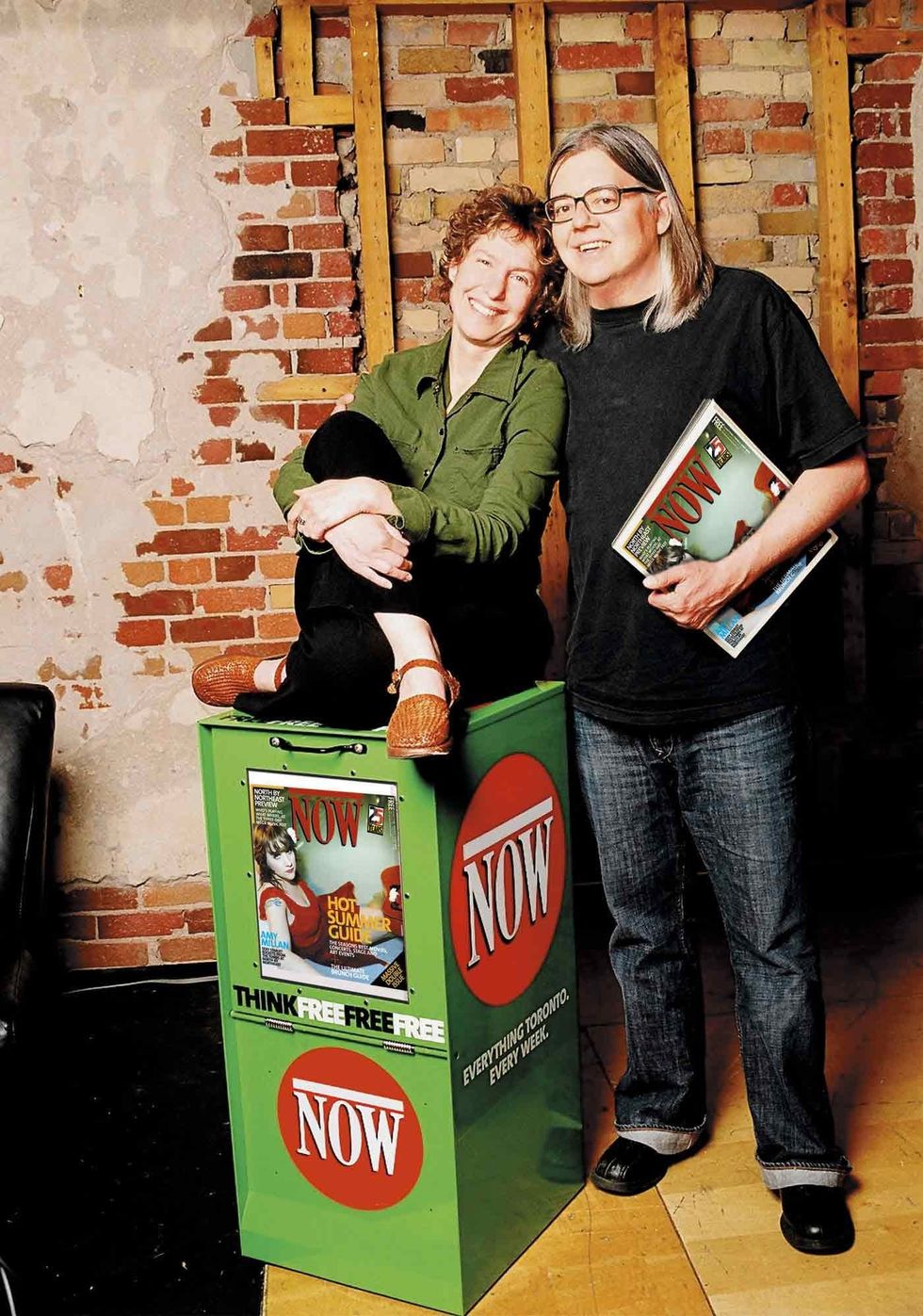
By David Farrell
Now what?
After 38 years of taking on city hall, the men in blue, exposing corporate malfeasance and figuratively painting Rob and Doug Ford as political Edsels, Alice Klein’s dream is over for Now magazine—Toronto’s little street paper that dared to be different.
On Monday, Klein sold the company for $1M cash and a promissory note for another million, subject to unspecified benchmarks being realized over the next 12 months.
Klein founded the newspaper with Michael Hollett in 1981 with high ideals that included countering the media status quo in the city and creating a megaphone for alternative cultures that felt they had no voice in the predominantly WASP male establishment that held sway over their lives.
The tabloid’s early beginnings were supported by a rag-tag collection of advertisers peddling hash pipes, waterbeds, concert tickets, Michael Budman and Don Green’s weird Roots’ Negative Heel Shoe line, and the city’s then illegal sex trade workers who brazenly filled as many as 20 pages with titillating colour display ads at the back of the paper.
The little paper grew to become a well-oiled and profitable party spoiler for old school Torontonians who had run the city forever with an iron grip. Success brought in national brands—from beer companies to condo developers, and the paper’s sometimes confrontational and oftentimes controversial hard news coverage brought with it a rabid clutch of litigants who felt exposed, wronged or simply didn’t like seeing their names in print.
A relatively new company, MediaCentral Corp. has acquired the Now brand and its press release announcing the ownership change perhaps suggests they see value in data mining Now’s well educated, mostly well-heeled readership that likes to eat, drink and be merry.
The acquisition announcement on the MediaCentral Inc. website reads as follows:
"MediaCentral aims to unify the nearly 100 million free-thinking readers through the acquisition of independent alternative media newspapers across North America. NOW Magazine is the second property of Media Central Corporation Inc., providing it with access to approximately 25 million annual readers and marking a significant milestone in the Company’s growth and achievements.
"MediaCentral intends to preserve the legacy, integrity and magnitude of NOW’s historic influence on the North American media industry while guiding it into its next evolution. The Company plans to enhance NOW through the introduction of new content verticals, and by integrating it with the recently launched cannabis digital platform CannCentral.com."
Klein announced the ownership change in a message to readers published Monday. In it, she alludes to the company hemorrhaging money. She also states that she is staying on as chief editorial strategist (for now).
The company's tilt from profitability came as a result of a steady decrease in big-ticket print ads and, to a degree, because of Klein’s decision to stop running sex worker ads in the print edition (a walled Toronto Adults section online continues to provide customers with a colourful menu of choices).
Former editor-publisher and co-founder Michael Hollett cashed out in July 2016, stating at the time he was leaving to concentrate his efforts on running NXNE.
Some saw his departure as a foreshadowing of what was to come. Klein’s perseverance was noble, and the fact that she found a suitor fortunate, but the facts are that news organizations and journalists are a dying breed and the so-called freemium model has proven itself to be unsustainable in the digital age. That cannabis could be the lifeline for the alternative press? Had one said as much a few years ago and many might have suggested you were smoking too much of the stuff.
A few small alternative press weeklies continue in Canada, but their slant has increasingly focused on lifestyle and entertainment features and listings because that's what pays the bills. In Halifax, The Coast has been covering the city's scene since 1993, and the granddaddy of them all is Vancouver's Georgia Straight that first published in 1967 and continues to be run by co-founder Dan McLeod.
And below, how the landscape has changed since those early years when hope and glory seemed attainable.
















